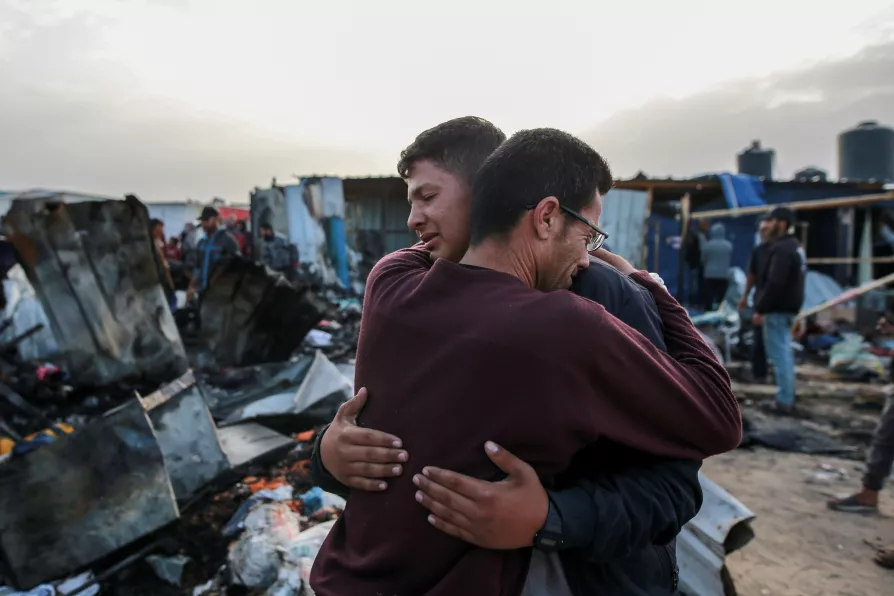The language of humiliation is a step towards a second civil war, argues RAMZY BAROUD

 ANGUISH: Palestinians weep amid the destruction after an Israeli strike where displaced people were staying in Rafah
ANGUISH: Palestinians weep amid the destruction after an Israeli strike where displaced people were staying in Rafah
AFTER three days of idea exchange and relationship building, the People’s Conference for Palestine ended with a bold call to mobilise: surround the White House on June 8 in protest against Israel’s ongoing offensive against Rafah.
“Biden said he had a red line, remember the red line? He said, if Netanyahu dares go into Rafah, that’s a red line, we the United States will stop sending weapons to Israel,” said Brian Becker, executive director of the Answer Coalition, said during the plenary session entitled “How Do Movements Achieve Transformation?”
“Israel went ahead and invaded Rafah, and what did Biden do? He continued to send the bombs and the missiles to carry out the massacre in Rafah and throughout Gaza. Biden’s red line is a lie!” Becker declared.

Spain has joined South Africa’s ICJ genocide case against Israel while imposing weapons bans and port restrictions, moves partly driven by trade unions — proving just how effectively civil society can reshape government policy, writes RAMZY BAROUD

The decision highlights the tension between freedom of expression and the state’s role in shaping historical memory at former concentration camps, reports LEON WYSTRYCHOWSKI

This time it is joined by famed Amazon union organiser Chris Smalls and the new vessel, the Handala, will carry baby formula for Gaza’s starving children just weeks after Israeli forces abducted the Madleen’s crew in international waters, reports ANA VRACAR










